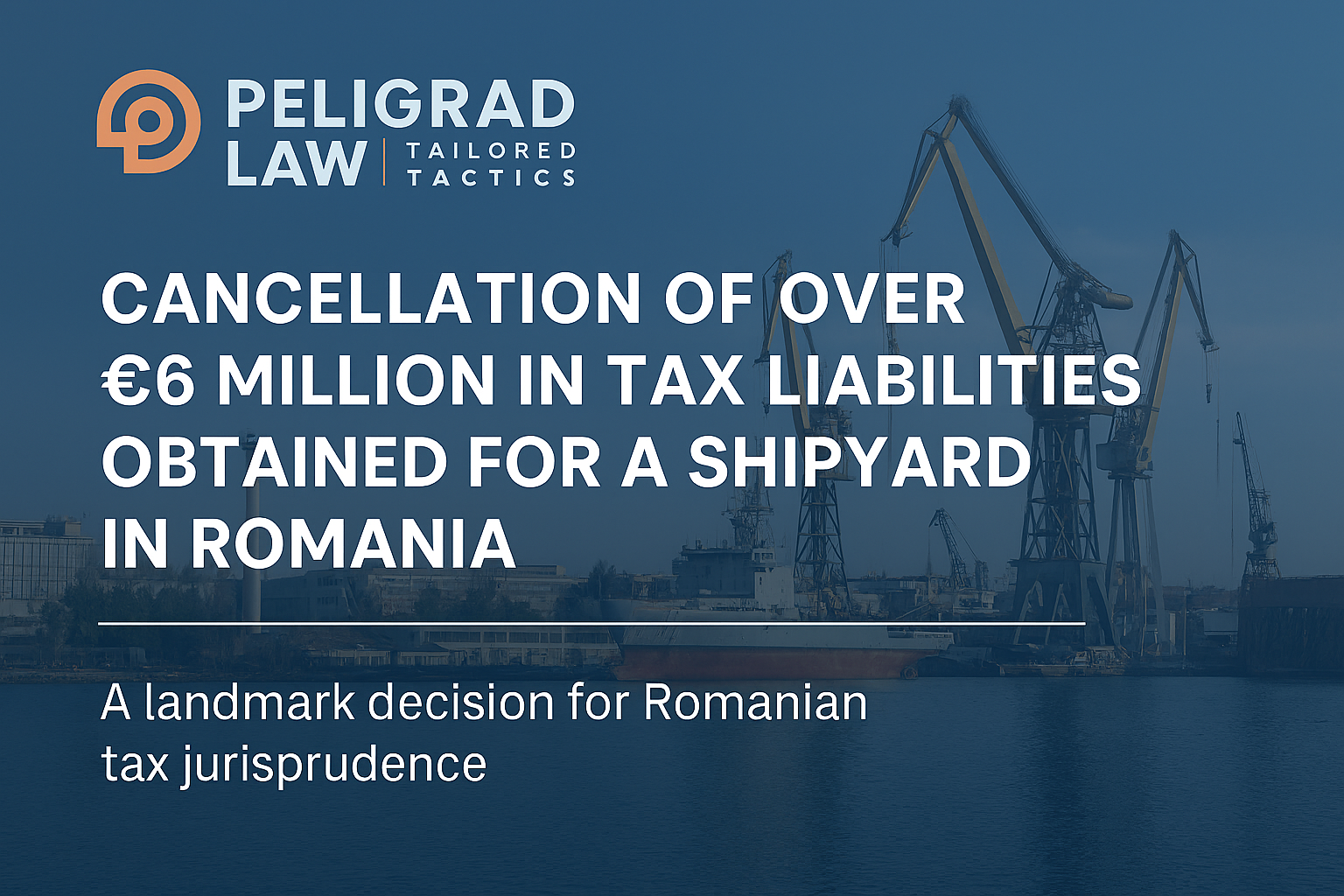Introduction
In today's fast-changing business environment, staying compliant with legal regulations is not just a requirement—it’s a strategic necessity. Romania, like other EU member states, is witnessing rapid regulatory transformations, driven by local, regional, and global factors. These changes can have far-reaching implications for businesses, affecting operations, financial health, and reputation.
For companies operating in Romania, compliance is particularly challenging. New rules on data protection, anti-corruption, environmental sustainability, and other legal domains demand constant vigilance. Failure to adapt can result in hefty fines, legal disputes, and damaged relationships with customers and stakeholders.
In this article, we’ll explore Romania’s evolving regulatory landscape, the challenges businesses face in maintaining compliance, and practical strategies to navigate these changes effectively.
Understanding the Romanian Regulatory Landscape
Romania’s regulatory environment reflects its integration into the European Union and its alignment with global trends. While these updates aim to create a fairer, more sustainable business environment, they also add layers of complexity.
- GDPR and Data Protection Compliance
The General Data Protection Regulation (GDPR), enforced since 2018, remains a top concern for Romanian businesses. GDPR governs how companies collect, store, and process personal data. Romanian authorities have been proactive in penalizing non-compliance, issuing fines for breaches such as inadequate consent mechanisms or poor data security practices.
Key Statistics:
Romania ranks among the top EU countries for GDPR fines issued per capital.
- Data breaches are reported by companies across sectors, from retail to IT.
- Anti-Corruption Measures
Romania has introduced stricter anti-corruption laws to combat unethical business practices. These measures include increased scrutiny of public contracts, mandatory disclosure of financial dealings, and protections for whistleblowers. Companies engaging with public entities must exercise heightened diligence. - Example: A multinational construction company faced penalties after failing to disclose certain vendor relationships during a bidding process.
- Environmental Regulations
Sustainability has become a regulatory priority, particularly in sectors like construction, agriculture, and manufacturing. Laws now enforce stricter standards for emissions, waste management, and resource use. - Trend: Investors increasingly favor businesses with a clear commitment to sustainability, further elevating the importance of compliance.
Common Compliance Challenges
Despite the clear benefits of regulatory compliance, businesses in Romania often struggle with the following issues:
- Keeping Up with Changes
Laws are frequently amended to align with EU directives. Businesses must adapt quickly, but tracking these changes requires resources and expertise many companies lack. - Resource Constraints
Small and medium-sized enterprises (SMEs), in particular, face challenges allocating budget and personnel to compliance efforts. - Complex Bureaucracy
Administrative hurdles, such as lengthy approval processes and unclear documentation requirements, exacerbate the difficulties of meeting legal obligations.
Strategies to Navigate Regulatory Changes
For businesses to thrive in Romania’s dynamic legal environment, a proactive approach is essential. Here’s how companies can stay ahead:
1. Conduct Comprehensive Compliance Audits
A compliance audit evaluates whether your business processes align with current laws. By identifying vulnerabilities, you can address issues before they escalate.
Steps for Effective Audits:
- Assess areas like data protection, environmental impact, and financial disclosures.
- Engage a legal advisor to conduct thorough risk assessments.
- Document findings and create a plan to rectify non-compliant practices.
Case Example: A retail chain avoided significant fines by identifying and addressing GDPR violations during a routine audit.
2. Leverage Technology for Compliance Management
Technology is a powerful tool for simplifying compliance. Automated systems can track legal changes, manage documentation, and monitor adherence to regulations in real time.
Recommended Tools:
- GDPR compliance platforms to ensure secure data handling.
- Environmental monitoring software for tracking emissions and waste.
- Contract management systems to maintain transparency in public tenders.
Insight: Businesses using compliance software report a 30% reduction in audit preparation time.
3. Build a Culture of Compliance
Compliance must extend beyond policies and procedures—it should be ingrained in your company culture. Employees at all levels should understand the importance of following regulations.
How to Promote Compliance Culture:
- Train employees on relevant laws and industry-specific risks.
- Establish an open-door policy for reporting potential violations.
- Reward adherence to compliance practices.
Example: A manufacturing company reduced workplace violations by 40% after implementing monthly training sessions.
4. Seek Tailored Legal Advice
Working with an experienced legal partner ensures your business remains compliant, even as laws evolve. Legal experts can provide industry-specific insights, help draft policies, and represent your company during audits.
Peligrad Law’s Support:
- Proactive compliance planning.
- Assistance with permits, contracts, and filings.
- Crisis management during investigations or disputes.
5. Monitor and Update Internal Policies
Policies should be dynamic, evolving as regulations change. Ensure key documents like employee handbooks, data privacy policies, and sustainability guidelines reflect current laws.
Best Practice: Review policies annually, or whenever significant legal updates occur.
Sector-Specific Insights
Compliance challenges vary by industry. Here’s how different sectors can approach them effectively:
- Technology: Focus on data privacy, cybersecurity, and intellectual property. Use robust encryption and clear user consent protocols.
- Construction: Prioritize environmental compliance, including waste management and sustainable building materials.
- Retail: Enhance consumer data protection and ensure transparency in marketing practices.
The Business Benefits of Compliance
While compliance may seem burdensome, it also offers tangible benefits:
- Enhanced Reputation
Demonstrating a commitment to ethical practices builds trust with customers and partners. - Competitive Advantage
Companies that meet or exceed regulatory standards often outperform competitors in securing contracts and investments. - Reduced Risk
Proactive compliance minimizes the likelihood of fines, lawsuits, and operational disruptions.
Conclusion
Navigating Romania’s regulatory landscape requires diligence, adaptability, and expertise. By staying informed and proactive, businesses can not only mitigate risks but also unlock opportunities for growth. At Peligrad Law, we specialize in helping companies achieve compliance seamlessly, offering tailored solutions that align with your goals.
Related posts
Explore other legal insights and updates.

Peligrad Law has obtained the cancellation of tax liabilities of over 6million euros for a shipyard in Romania

Peligrad Law successfully represented Heineken in a tax litigation securing the annulment of tax liabilities exceeding EUR 7million

Corporate Mergers in the Digital Age: Opportunities and Risks


